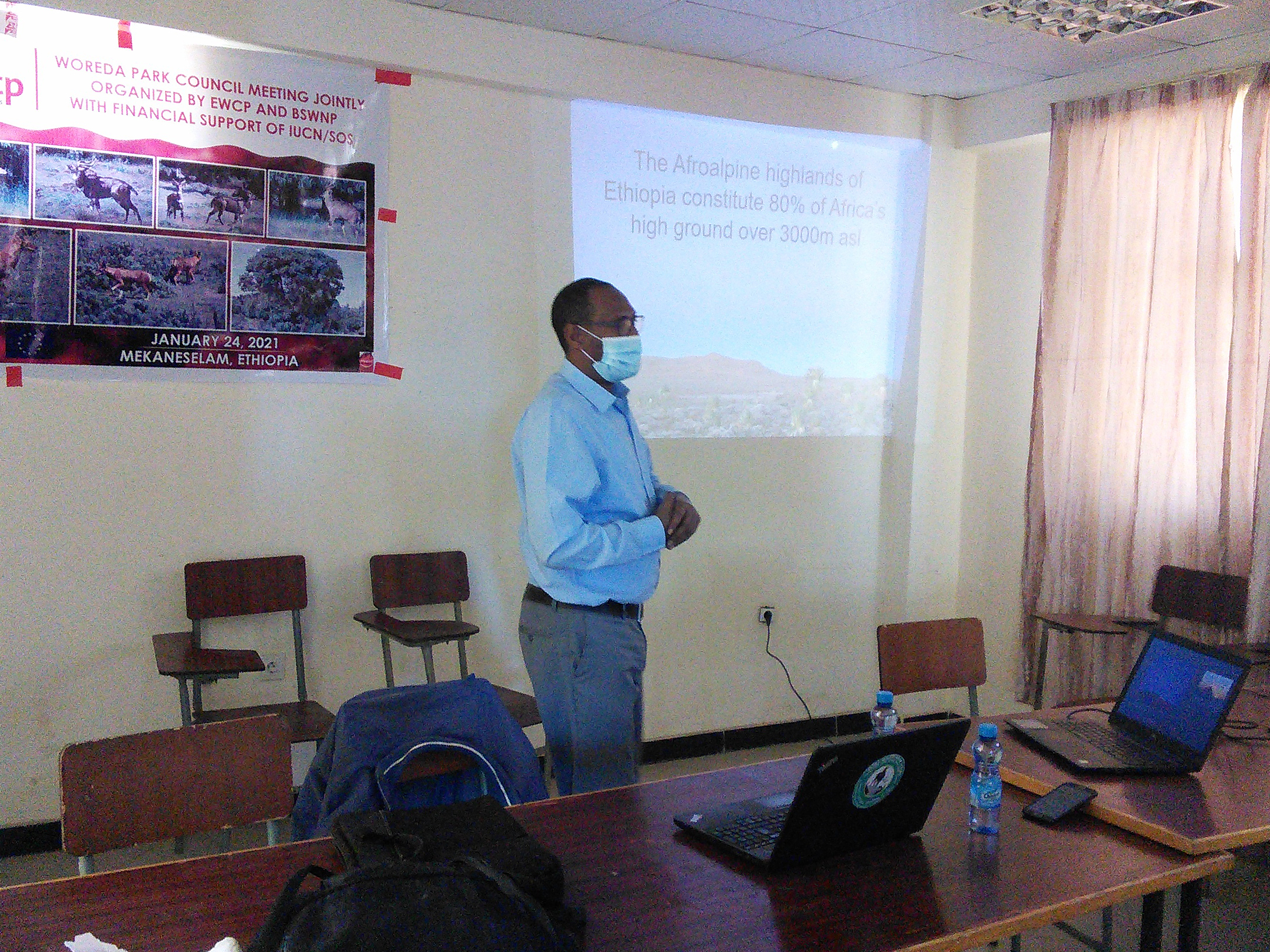

The Ethiopian highlands support a diverse array of endemic animal and plant life but also boast vital natural resources for local communities, including firewood, pastures, water, medicinal plants and building materials. Achieving sustainability in the use of these resources is vital to ensuring resilient livelihoods and an alternative to land conversion to agriculture, the main threat of the survival of the endangered Ethiopian wolf. With this vision in mind, the Ethiopian Wolf Conservation Programme (EWCP) implements the Biodiversity Friendly Futures project, promoting alternative local livelihoods that create additional income source while reducing the community’s pressure on the Afroalpine environment. This cannot be achieved without strong community connections and outreach efforts.
Thanks to support from IUCN Save Our Species, co-funded by the European Union, EWCP is able to bring together partners across all levels and lever the necessary support. The project engages everyone from district heads and protected area management to local administrators and communities. One key mechanism for grassroots involvement are the “community councils”, where local leaders and officials gather to discuss issues relevant to the preservation of the environment, and everyone is heard. The councils’ regular meetings give us the chance to bridge information gaps, identify issues as early as possible and learn directly from the experiences of local communities and governments.

Although most activities involving the public have been delayed over the last year, in the northern Amhara region EWCP staff have ensured that project beneficiaries and community members still have a voice. In recent months, and with Covid-safe protocols carefully followed, Girma Eshete, Fekadu Lema and Misrak Seyoum have facilitated community council meetings around three key Afroalpine areas: the Borena Sayint Worrehimenu National Park, the Abune Yosef Community Conservation Area, near the famous city of Lalibela, and Delanta, home to a new wolf population established by the Addis Tesfa pack.
These community council meetings are becoming a well-established tradition but it is common that funding and logistical support is at a shortage, threatening their regularity. Thanks to EWCP’s financial and logistical support, council meeting went ahead this year, produced fruitful discussions about current threats to wolf habitats at different sites and opportunities to expand the alternative livelihood initiatives where they are most needed. We learned valuable lessons about the importance of experience-sharing between beneficiaries to showcase the positive ecological and socio-economic impacts that are already seen by highland honey producers and Guassa grass growers.
In Borena Sayint, many honey producers consider themselves responsible for protecting the Erica trees and are fighting against the use of pesticides. They are viewed as respectable role models and leaders by the rest of the community, and with their profits from selling honey some have been able to open savings accounts, build houses in the town, pay hospital expenses and tuition for their children, and one beekeeper even used his earnings to cover marriage expenses for his son.
In Delanta, problems have arisen from the creation of a new woreda (District) overlapping Atse Gedel, the best wolf habitat. With unclear border delineation between adjacent woredas, uncertainty over access to resources and land has led to disagreements and further degradation of the environment. In response, these communities will be the focus of our Guassa Gardens initiative, by which farmers grow this native grass, with has high commercial value, helps restore soils and population of rodents, the main wolf of the wolves, and it is emerging as an alternative to agriculture in Delanta. With the evidence provided by EWCP that the divided management of the land between the three districts has been ineffective, a forum involving all three woredas and the regional bureau has been organised to explore ways to integrate efforts to protect the area.
Meetings may not seem like the most glamorous part of our conservation efforts, but they have proved a critical tool in reaching people who can have the greatest impact on protecting the Afroalpine ecosystem, and ensuring our work to conserve Ethiopian wolves is as effective as it can be.